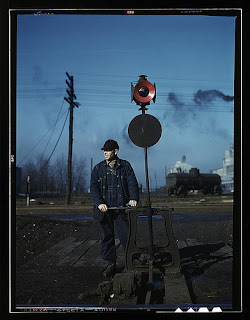Teaching life
Reflection
September 2013
I started graduate school with big plans. I was going to write the book, the book that would make everyone say, "OH! How did I not see this? Finally!" and boom, the world would be saved. I knew deep down that it wasn't actually going to be like that, but I wasn't prepared for exactly how much it's nothing like that at all. Higher education, especially the humanities, has become a pyramid scheme: cheap graduate student and adjunct professor labor holds up grossly inflated university president salaries. Tenure track positions are being replaced with five adjunct positions. One must publish constantly to succeed, with emphasis on quantity, not quality, making tightly-budgeting university presses the gatekeeper of the academy. The huge influx of new academics since the 70's and 80's has saturated the fields of knowledge. To be a scholar now means to be the world's expert on one, tiny thing, like the religious tensions in Boston from 1745 to 1748 as pertaining to the debate about...blah blah blah. Especially in a religion department, if you're not there to explain to people how everyone is a unique, precious snowflake, filled with the authentic religious humanness of humanity, then you might as well look for work elsewhere. I'm a little too pragmatic these days to deal with the humannesses of humanity. To quote my mentor, "Shakespeare has gotta get paid!"
But what I've learned is not that change in this world is hopeless, only that higher education is not where it's going to start. Max Weber has a really nice analogy of history: actors are more switchmen on a railroad track than movers and shakers. As I've said in previous posts, history has momentum. The structures we've built can't simply be wished away or changed with the slash of the pen (our current attempt at healthcare reform is a good example). But trains can still be urged this way and that. And even more than trains, a person can be nudged on this track or the other.

I think there is something profound about the position of teacher. I have found that, especially in this hyper-polarized country (or at least, the seemingly hyper-polarized country we are media-fed), if I act as teacher in all things, people listen. I do not mean teacher as in, "Let me sit you down child and show you the way the world really is." I mean teaching as in getting somebody to see a problem in a new way, bringing the information to the mind instead of trying to drag the mind kicking and screaming to the information, opening up new possibilities with patience and understanding, and, above all, listening in turn.
With this in mind, I have accepted a job teaching high school physics in a district near Austin. Leaving Tallahassee so suddenly has been hard: we didn't get to say good bye to anyone, and I won't get to see them until spring break in March (with the 3-month baby in tow!). But three weeks into the school year, I can still say with relative certainty that I am where I fit best. If there is a silver bullet in the fight to make a more compassionate, sustainable, just, and peaceful world, education might be it.
When I taught for a year in Indiana, I remember feeling disheartened not at the students or the administration, but at the system in general. Like higher education, secondary education has plenty that needs fixing with seemingly nobody at the wheel who knows where the hell the bus is going. But with the grants, presidents, tenure, adjuncts, and prestige envy out of the way, I think high school might be a little more fixable. It feels more like a gift economy than a money economy, something of a community rather than a business, neighbors rather than customers.

I have not written in several months, and with how busy I am now I cannot promise steady posts, but I hope to continue using this blog as a venue for honest conversation about where this old world has been and to which tracks we should try to switch it.
Thank you all, and happy teaching,
Chad